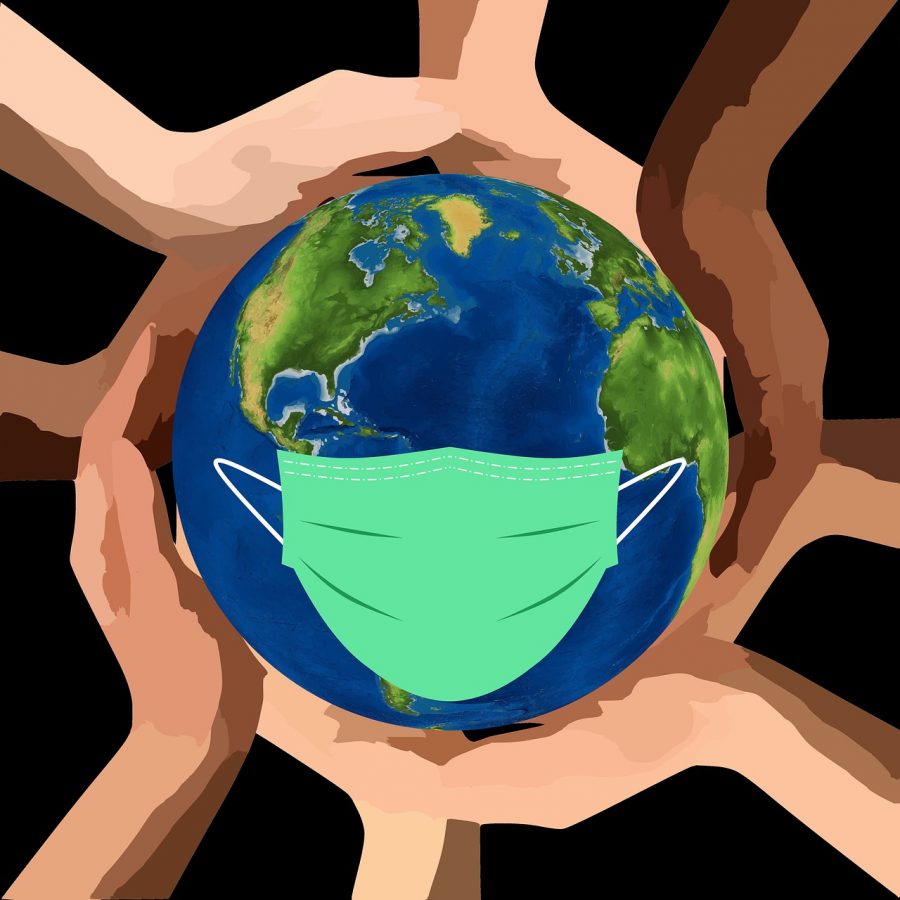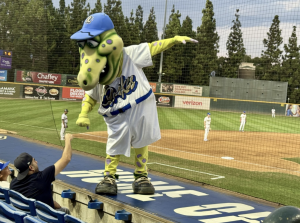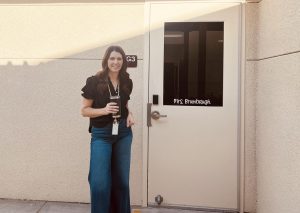It’s the End of the World as We Know It (Or is It?)
The coronavirus turned the world upside down…or did it?
June 12, 2020
At first, the coronavirus was a joke, a subject of memes and teasing. It was crazy, right? It didn’t make any sense why everyone was making such a big fuss over something no worse than the flu. Then, seemingly overnight, our world imploded.
Entire countries went on lockdown.
China issued military-enforced isolation.
Italy’s streets went dead silent.
Austria made face masks obligatory.
And yet, it still didn’t feel real. Maybe it was our president, who claimed everything was fine. Maybe it was our (naive) belief that it couldn’t actually be that bad. Whatever the facade was, it was quickly slipping away. The jokes became more subdued, like we were covering up the tension with fake smiles and too-loud laughs. Something had to give. And then, everything did. Even our wonderful Oompa-Loompa president couldn’t spin the outbreak as good PR. When that final blinder fell away, there was nothing to do. Our economy went into free fall. People stayed home and stockpiled toilet paper. And schools all across the country shut down.
It’s difficult to explain the repercussions of that last act. Anyone who has heard a high schooler talk about school would assume that students were thrilled with this newfound freedom. However, that point of view doesn’t take into account our need for consistency. School may be inane and repetitive, but at least we know what’s going to happen. With one fell swoop, all of that disappeared. Instead of feeling freed, many people felt more burdened than ever before.
How do you stay motivated in a world gone mad?
Slowly, we started to answer this question as time slowed down to the endless seconds that stretched out ahead. How do you fill the seconds when no one is watching? I baked countless confections until my mom told me to quit using all the eggs. Then my sister pulled me into the world of LEGOs. Time becomes an abstract concept when all that matters are little plastic blocks. It was comforting to have control, even if all I controlled were two LEGO figurines. Our parents started to join us for these impromptu building sessions- they too craved order in this world gone mad. But order, no matter how carefully built, does not last forever. And yet again, the seconds were empty. So people turned to each other. We learned to be gentle, with others and with ourselves. We learned to take things one day, one hour, one minute at a time. We learned to be grateful for everything big and small—our lives, our doctors, our families. In the face of sorrow and loneliness, people started taking the time to reach out.
One hand met another (not literally of course, that’s the whole point of the quarantine), and another, and another. People gave what they could—be it money, hand sanitizer, or even toilet paper. There were sorrows, of course. A pandemic is never a perfect story. There were riots and tears and desolation. People lost parents and grandparents, neighbors and friends. But when the world goes mad, it’s the people who bring it back. Together we can.
And together, we will.






